Research-based graduate-level “Children and Nature” course engages students in making the case for nature connection
“If you’re interested in getting kids outside, no matter what your perspective is, it’s related to this broad narrative of why that might be important,” says Dr. Kathryn Stevenson, professor at North Carolina State University. Dr. Stevenson works within the school’s Department of Parks, Recreation, and Tourism Management, where she teaches “Children and Nature” as a graduate-level course, offering her students generative insight within the field.
The student body for the course is diverse, coming from all across the university; whether it’s for a Ph.D. in elementary education or a Master’s in Biology, or for a 4-H employee’s professional development — all are helping contribute to the movement for children and nature. This immersive course envelops the students with many prominent researchers, practitioners, and places, helping the students to integrate research on children and nature into their schools, parks, and systems. From guest speakers to field trips, Dr. Stevenson aims to orient the students to children and nature research — encompassing the content of the research and the researchers themselves, and then engaging students into contributing to the research.
In late 2022, Dr. Stevenson partnered with the Children & Nature Network to provide her students with the opportunity to develop some real-world research skills by collaborating with the Children & Nature Network’s research team. The Children & Nature Network’s Research Library provides a freely accessible public database with summaries of more than 1,300 scientific studies pertaining to the field of children and nature. “The idea behind the Research Library is to share the scientific research with practitioners and with members of the public so that anyone can make the case for children and nature — and learn best practices for how to connect children with nature,” explains Dr. Cathy Jordan, Consulting Director of Research for the Children & Nature Network.
Each month, Jordan leads the Children & Nature Network’s research team in producing a themed Research Digest, gathering the latest relevant studies focusing on themes such as the benefits of green schoolyards, how nature connection fosters pro-environmental behaviors, and the effects of climate change on children’s mental health. Each Digest adds new studies to the ever-growing Research Library, as well as providing additional context by drawing some broader conclusions about the trends and themes seen across the research.
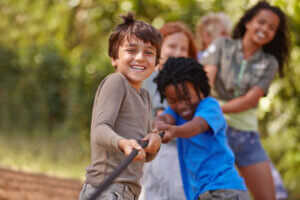
One of the studies summarized in December 2022’s Research Digest addressed outdoor summer camps.
For December 2022’s Research Digest, students from Dr. Stevenson’s Children and Nature course took over, with each student selecting, reviewing, and summarizing a recent study related to the month’s theme, “Inequitable access to nature.” The Digest covered studies that raise awareness of inequities, demonstrate the potential for nature engagement to help narrow disparities in children’s health and well-being, and provide examples of specific initiatives designed to address inequities in children’s access to nature.
“This was the first time that we’ve collaborated with an outside group to produce a Research Digest,” says Jordan. “It was fantastic to get fresh perspectives from researchers who are relatively new to the field, and the students and faculty at North Carolina State made for a wonderful collaboration.”
Dr. Stevenson agrees. “[Working on this Research Digest] provided a really nice outlet for students to develop new skills,” she explains. “Reading a peer-reviewed article and summarizing it is useful — it builds their chops as researchers and also allows them to give back to the community. We were glad to contribute to the Children & Nature Network’s work. It’s such a collaborative crew.”
“The Children & Nature Network provides a clear resource and convener of the field,” Dr. Stevenson continues. “And the field is really broad! I think what they’re trying to do is make a really big tent for anyone interested in getting kids outside for whatever reason — whether that’s to enhance learning, or to boost children’s mental health or physical health, or focusing on equity and access.”
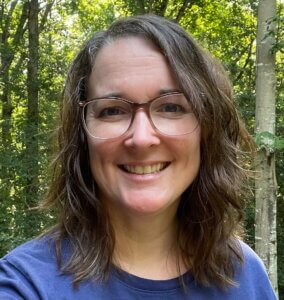
Jill McGowan
One of the grad students involved is Jill McGowan, a third-year Ph.D. student at NC State in Elementary Science Education, with a focus on outdoor education. “This course is the heart of my research — children and nature. Children and nature is what I advocate for, the reason I am working on my Ph.D., and focusing on children and nature is what I am hoping to do once I finish my degree,” says McGowan. In the 2021-2022 school year, McGowan partnered with another graduate student to develop and lead a professional development program to help teachers bring science lessons outside of the classroom, thanks to connections made at NC State.
Now, her involvement in Dr. Stevenson’s course and the opportunity to contribute to the Research Digest has reinforced McGowan’s desire to continue advocating for all children to have positive experiences in nature. “This type of research about environmental justice and equity in the outdoors is important because everyone should have the opportunity to reap the benefits of nature,” McGowan explains.
Ultimately, McGowan says, “I want to help teachers feel comfortable in utilizing the outdoors for learning and encourage them to take their students outside as often as possible to provide authentic, place-based, nature experiences for their students.”
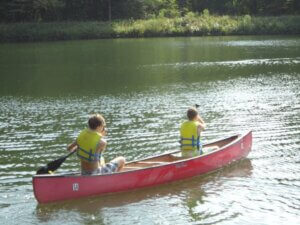
A photo of graduate student Jared Jones as a kid, enjoying nature.
Nature connection course benefits related fields of study
Whether the goal is to work in a related field or not, the “Children and Nature” course offers value for a wide range of careers that students are striving for.
Student Kait Neeland is not a part of a degree program, but she took the Children and Nature course to grow her skill set for her current role at NC State, where she works for the College of Agriculture and Life Sciences, directing a 4-H Youth Development program. In her role, Neeland leads a variety of programs for youth, teaching skills as diverse as how to build and program robots and public speaking, as well as agriculture and horticulture. The programs are designed to encourage kids to be out in nature and active while integrating themes of nutrition and health.
Neeland gravitates to the more clinical side of children and nature work. “In the field I’m in now, ‘the environment’ most often refers to where people are: what is the environment children are living in, their homes, their communities, the resources that are available to them,” she explains. For many of her fellow classmates, “the environment” refers to the natural environment, with its connotations of conservation and preservation. “It’s fascinating how we all can be active in the environmental justice area, but we’re almost speaking a different language in how we do it.”
But Neeland sees the value in those differences. “I think that one of the far-reaching things that I’m taking away from this is that we learn so much more and can progress so much more if lots of people from different fields are working together towards a particular issue, than if we’re just quietly working in our own little subgroups and our own closed academic environments,” she says. She describes the fruitful conversations that have occurred with her classmates. “We all come from such different perspectives… I found that very beneficial.”

Jared Jones
Bringing another perspective, student Jared Jones is pursuing a Master of Science degree in Parks, Recreation and Tourism Management. “I enrolled in the Children and Nature course because children and child-related services are a major service population in the public parks and recreation field. I felt it was in my and their best interest to learn more about nature-based recreation and education and the suite of benefits that nature can provide to children!”
Jones points out the practical benefits of the course — where other classes in his degree program focus on methods and theory, this course really helps him visualize the outcomes that can come from research. He also notes the health benefits that accompany time spent outdoors, both “the physical and mental health benefits that children acquire through connecting to and immersing in nature.”
He explains, “Many people might have general comments on the benefits of nature, but this work really helped me gain a clearer perspective on those benefits.” Thanks to his work in the course, Jones says, “I think I’ve walked away armed with research that I can take to my future career.”
2 Comments
Submit a Comment
- December 2022 Research Digest, “Inequitable access to nature,” produced in collaboration with “Children and Nature” course
- “The equigenic effect: How nature access can level the playing field for children,” an interview with Dr. Cathy Jordan
- “Connecting diverse youth to outdoor careers,” a Finding Nature News feature about a professor’s unlikely career path
- “Ron Griswell launches HBCUs Outside to share his love of the outdoors,” a Finding Nature News feature about highlighting outdoor leadership at historically Black colleges and universities (HBCUs)
- Summaries of Dr. Kathryn Stevenson’s scientific studies related to children and nature in our Research Library
-
Network News
POLICY UPDATE: Policy and advocacy for the children and nature movement
-
Voices
Binoculars, bald eagles and my journey as a Black birder
-
Richard Louv
THE WONDER BOWL: Ten Spring and Summer Nature Activities for Kids and Adults
-
Network News
Minneapolis Spotlight: The promise and possibilities of parks for youth
-
Voices
Why nature is my motherhood ally
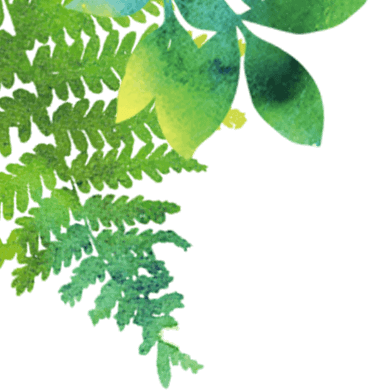


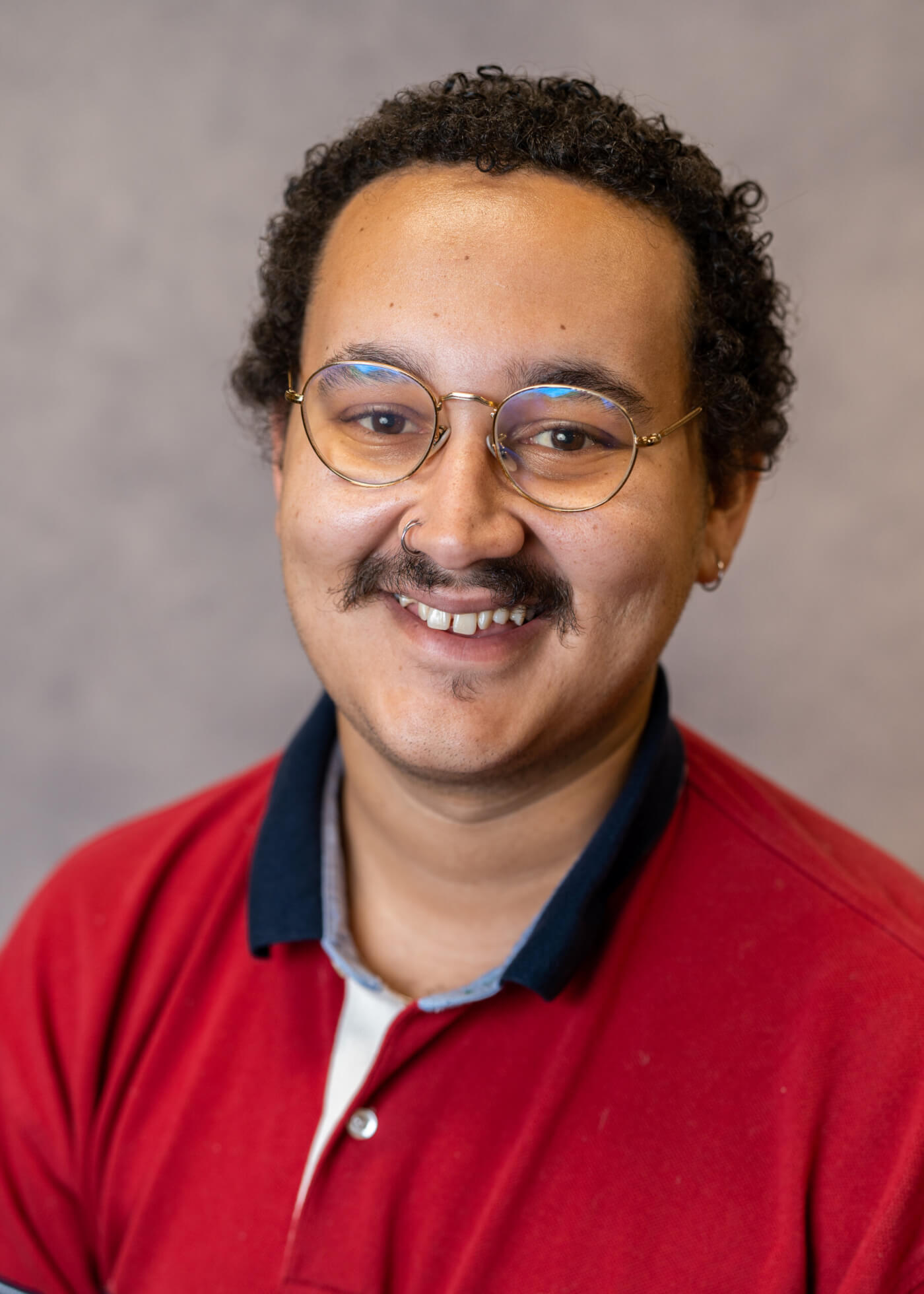

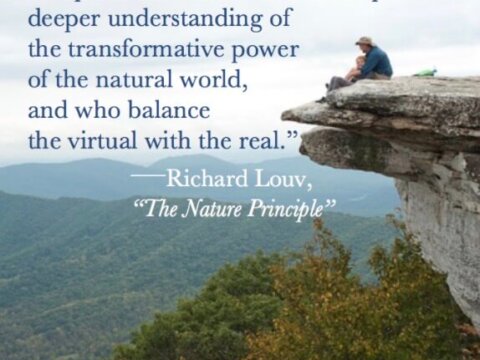
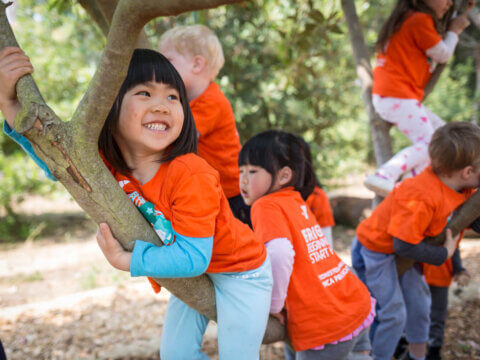
Long time reader here. This was very informative and a beautiful written article. Hope to see more of Mr. May and his journalism here in the future!
Thanks for your feedback, Jacob. We think it’s a great article, too. Thanks for continuing to follow Finding Nature News!